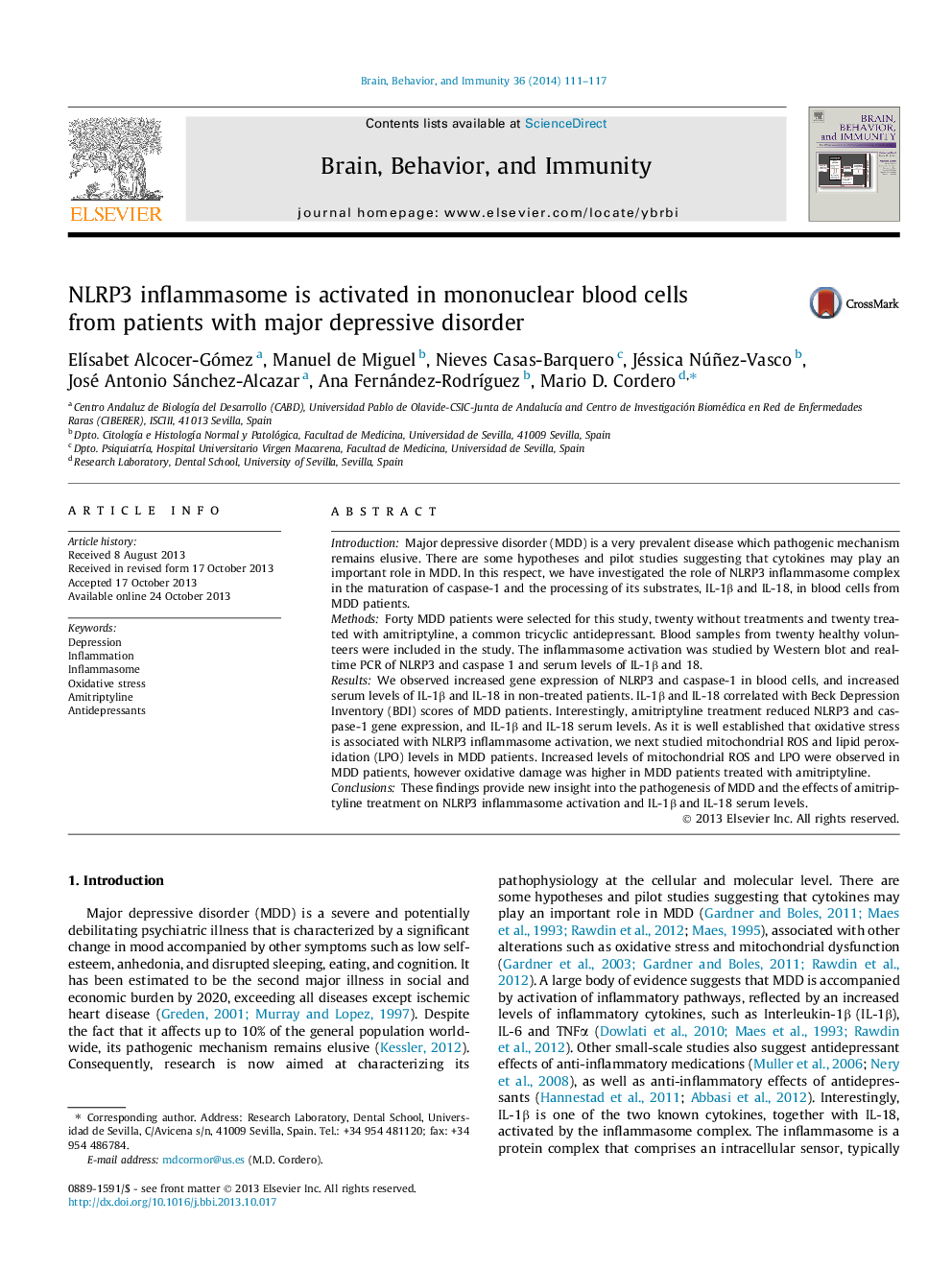| Article ID | Journal | Published Year | Pages | File Type |
|---|---|---|---|---|
| 922417 | Brain, Behavior, and Immunity | 2014 | 7 Pages |
Highlight•Activation of inflammasome in major depressive disorder provide new insights into the pathogenesis and may represent a new therapeutic option for the disease.
IntroductionMajor depressive disorder (MDD) is a very prevalent disease which pathogenic mechanism remains elusive. There are some hypotheses and pilot studies suggesting that cytokines may play an important role in MDD. In this respect, we have investigated the role of NLRP3 inflammasome complex in the maturation of caspase-1 and the processing of its substrates, IL-1β and IL-18, in blood cells from MDD patients.MethodsForty MDD patients were selected for this study, twenty without treatments and twenty treated with amitriptyline, a common tricyclic antidepressant. Blood samples from twenty healthy volunteers were included in the study. The inflammasome activation was studied by Western blot and real-time PCR of NLRP3 and caspase 1 and serum levels of IL-1β and 18.ResultsWe observed increased gene expression of NLRP3 and caspase-1 in blood cells, and increased serum levels of IL-1β and IL-18 in non-treated patients. IL-1β and IL-18 correlated with Beck Depression Inventory (BDI) scores of MDD patients. Interestingly, amitriptyline treatment reduced NLRP3 and caspase-1 gene expression, and IL-1β and IL-18 serum levels. As it is well established that oxidative stress is associated with NLRP3 inflammasome activation, we next studied mitochondrial ROS and lipid peroxidation (LPO) levels in MDD patients. Increased levels of mitochondrial ROS and LPO were observed in MDD patients, however oxidative damage was higher in MDD patients treated with amitriptyline.ConclusionsThese findings provide new insight into the pathogenesis of MDD and the effects of amitriptyline treatment on NLRP3 inflammasome activation and IL-1β and IL-18 serum levels.
